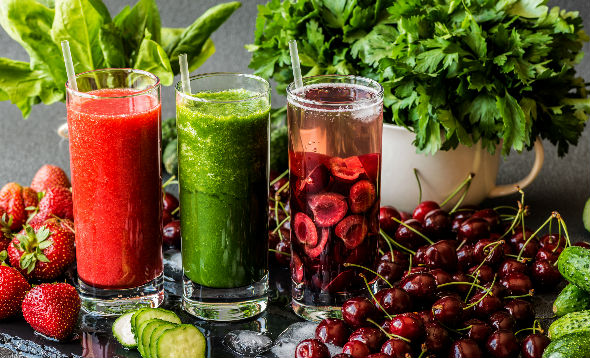That organic living is a conscious health choice
Health Reset after the Festive Feasting
Clients often ask: How can I hit ‘reset’ after the nearly three-month stretch of festive indulgence?
Rather than purchasing celebrity-endorsed diet guides or scouring the Internet for the latest weight loss programmes, consider taking a fresh approach in 2018 – one that’s moderate, strategic and therapeutic.
Take It Easy
When we feel that we’ve veered off our wellness track, drastic measures, such as intensive fasts, crash diets or detox programmes, may seem almost warranted to get ourselves back in line – and shape.
While tempting, these well intended but overzealous efforts may just work against you. A deprivation-style diet and all-or-nothing mentality is likely to leave you depleted in essential nutrients. Coupled with a laundry list of impractical ‘no’s’, your crash diet is likely to crash and burn sooner than you can say ‘ice cream’.
Consider a middle ground approach - one that serves as a warm-up for wellness-focused days ahead, sets you up for success from the onset and establishes a sustainable routine for mindful eating thereafter. Whether it’s reducing refined sugar intake or dialing back on red meat in your diet, prioritise a few key areas and home in on those first. Moderation – rather than deprivation – is more effective at reducing dependencies and preventing rebound binging sessions.
Get Comfortable
Making changes may be necessary, but it’s not always easy. Withdrawal or resistance to adjustments can occur both physiologically and mentally.
The Body
Our bodies can become used to receiving certain nutrients at stipulated times and can become dependent on certain active compounds in the foods that we consume regularly.
Fortunately, there are ways to offset these effects. If you’ve decided to abstain from refined or added sugar, consider transitioning to small frequent meals and enjoying fresh fruits as snacks. These little changes may help to stabilise your blood sugar levels while aiding your body to acclimatise to the new sugar-free regime. If you’ve committed to nixing coffee, consider a progressive wean from caffeine. Replace your daily java with an antioxidant-rich green tea, before gradually working towards a caffeine-free herbal infusion.
The Mind
When daily must-haves become off-limits, we feel a psychological void. To avoid giving in to your cravings, plan ahead and keep alternatives on hand.
- If you usually knock back a tipple or two at home after work, stock the refrigerator with sparkling natural fruit juices instead.
- Feel the need to end your dinner on a sweet note? Instead of ice cream or cake, reach for a frozen acai smoothie or a probiotic-rich yoghurt.
- Those on an intermittent fast or serial snackers trying to cut back on between meal nibbles could do with some positive distractions to take their minds off food. Schedule a walk with a friend, read a good book, or make phone dates with far-away family members.
Restore and Rebuild
Anticipating and alleviating potential side effects might make these little changes more manageable. If you’re up for it, go one step further and dial your diet up a notch for overall health optimisation.
- Consider stocking your pantry with antioxidant-rich and anti-inflammatory superfoods – such as wild Alaskan salmon, flax or chia seeds, and fresh turmeric - to repair cellular damage and encourage the regeneration of tissues.
- Consult with a dietitian and revisit your supplement regime. Incorporate ground nuts and seeds into your morning porridge or smoothie. Rather than simply paring down your diet, top up it up with healthful foods!


























_1672804154.jpg)

_1611290459.jpg)